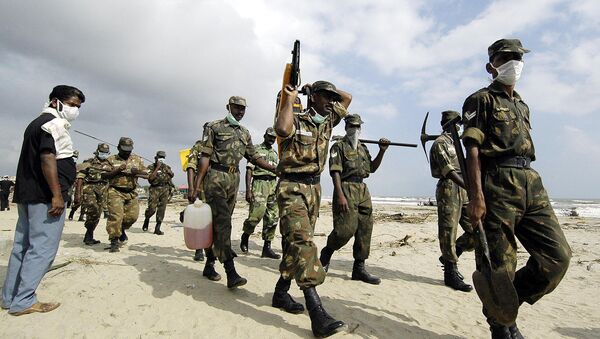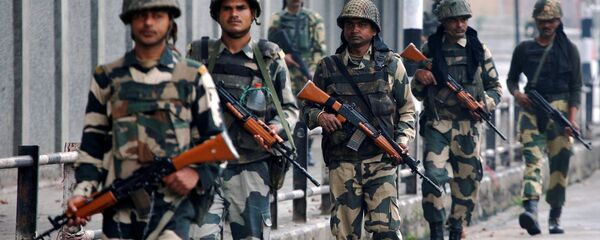New Delhi (Sputnik) — In what is being seen as a strong indication of improved law and order and the security situation in areas that were earlier considered "disturbed," the government of India has withdrawn the controversial Armed Forces (Special Powers) Act, 1958, infamously known as AFSPA, from the northeastern state of Meghalaya and parts of Arunachal Pradesh. In Arunachal Pradesh, the AFSPA will remain enforced in eight police stations — down from 16 — near the border with Assam, and in three districts — Tirap, Changlang, and Longding — near the border with Myanmar.
AFSPA removed from #Meghalaya completely.
— All India Radio News (@airnewsalerts) April 23, 2018
The AFSPA empowers the army and central paramilitary forces deployed in declared "disturbed areas" to kill anyone acting in contravention of law, as well as arrest and search any premises without a warrant and provide cover to forces from prosecution and legal suits.
"The government has also relaxed the Protected Area Permit (PAP) or visa restrictions for foreigners visiting Manipur, Mizoram, and Nagaland. The PAP will be valid for five years, however, areas will continue to remain inaccessible for citizens of Pakistan, Afghanistan, and China," a government official told Sputnik.
According to the Ministry of Home Affairs, there has been a 63 percent fall in insurgency-related incidents in the region, with an 83 percent reduction in civilian deaths and a 40 percent reduction in security force casualties since 2014.
READ MORE: Three Militants Killed, Kashmir Valley Shut Down and Braces for Violent Protests
With the withdrawal of AFSPA in the northeastern states, the demand for revoking the act from the restive Kashmir valley has once again gained momentum. Separatist leader Mirwaiz Umar Farooq has argued that if AFSPA can be revoked in the northeastern territories, then it could also be revoked in the Jammu and Kashmir.
"For the past 30 years draconian & oppressive #AFSPA has played havoc with our lives. Time &again we have demanded its withdrawal. If Government of India can remove it from its northeastern territories, this cruel and merciless power bestowed upon Indian Forces in Jammu and Kashmir should be revoked immediately!" Mirwaiz tweeted.
Amidst the confusion and manufactured crises by the opposition, huge applause to the Govt for withdrawing AFSPA from Meghalaya and large parts of Arunachal. Excellent decision
— Sunanda Vashisht (@sunandavashisht) April 23, 2018
Last month, the Indian government had refused to admit a proposal to amend the Armed Forces (Jammu and Kashmir) Special Powers Act, 1990, in force in Jammu and Kashmir.
"However, a proposal is under consideration to make Armed Forces (Special Powers) Act, 1958, more operationally effective and humane," Hansraj Gangaram Ahir, India's minister of state for home affairs, had said in a written reply in Parliament on March 20.



